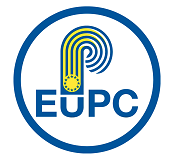2022
PUPC against the project of French Decree on XPS, EPP and XPP
Polish Union of Plastics Converters together with the European Plastics Converters, the French association Elipso, the German IK and the the european organization for packaging and the environment EUROPEN raised an opposition to the French project, which extends the scope of the directive.
Our contribution can be vievew here
Below you can find our statement from 5th of May 2022:
Polish Plastics Converters statement on TRIS notification 2022/167/F (France) Decree on the Prohibition of Certain Single-Use Plastic Food Containers made of Expanded or Extruded Plastics
The Draft Decree prohibits the provision of single-use plastic food containers consisting entirely or partly of extruded polystyrene (XPS), expanded (EPP) or extruded polypropylene (XPP) and intended for on-site or nomadic consumption. The decree at issue has been drafted in the framework of a further implementation of the Law of 10 February 2020 on the fight against waste and on the circular economy (known as the “AGEC law”) and is not supported by any Impact Assessment.
Violation of EU legislation
The EU prohibition items are precisely specified in Single Use Plastics Directive. It is intended to prevent the environmental impact of the disposal of EPS single-use plastic products and risk related to the unintended release of particles that EPS is made of. But the French Decree targets the same products when they are made partially or wholly of extruded polystyrene and expanded or extruded polypropylene going beyond the scope of directive.
In PUPC opinion this proposed prohibition is not in line with the European legislative intention. It is unproportionate, discriminatory and violates the rationale of the SUP Directive. Under the SUP Directive, prohibitions should be seen as a last resort for implementing measures that are in line with the environmental principle while at same time maintaining the free circulation of goods in the Single Market. Targeting XPS, EPP and XPP without any scientific analysis is unjustified.
The draft is contradictory with the spirit of the Directive and the intention of the European Legislator upon which the AGEC Law relies. Initially, EPS SUP containers were not included in the list of the 10 most littered items (out of the JRC Study1) that prompted the legislative proposal for the Directive, however EPS items were eventually added by the European Parliament as to avoid the unintentional release of the little particles that EPS is made of. The rationale was to limit the appearance of the little particles in the environment from the discard and abrasion of on-the-go EPS containers by consumers. But in case of XPS, EPP and XPP containers such possible scenario cannot happen because of their density, which is thicker than EPS and their composition does not allow for a dispersion of their components. They are sorted and collected by national systems. EPP and XPP products are already widely collected and recycled together with PP waste, flexible polystyrene is subject to many recycling investments today.
Discrepancy with harmonization of EU legislation and contradiction with singe EU market
We observe especially in regulations dealing with plastic industry the problem of different interpretation of directives in EU countries. As we know an internal EU market is the main objective of the EU and the greatest achievement and benefit of its member countries. But it is only possible to maintain and develop through the harmonization of EU legislation. EU plastic industry for many years have been creating connections within EU market. At present many companies located in one country supply with components or ready-made products in other parts of EU.
The French draft decree undeniably creates an unjustified prohibition of materials and SUP items, adding an additional deviation from the framework created by the SUP Directive, which will result in a violation of the free circulation of goods in the Single Market and an unjustified bigger fragmentation of the Single Market. This Decree goes beyond the provisions set in the policy objectives foreseen by the Legislator, while at the same disregarding other fundamental principles set by other EU main regulations.
Therefore, polish plastic converters represented by PUPC are against the draft in the shape presented in TRIS.



Download